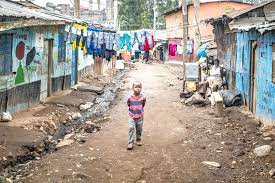Nearly 5,000 school children in two informal settlements in the Kenyan capital are being protected against COVID-19 thanks to an UN-Habitat initiative to expand mask and recycling bins in those often-overlooked areas.
In a statement on Wednesday, UN-Habitat says the three-week initiative in Mathare and Kibera informal settlements is in line with its commitment not only to upgrade the quality of life in slums worldwide but also to ensure a more equitable distribution of resources to all citizens as a step toward providing more sustainable urban development.
The Youth-led Covid-19 Emergency Response initiative comes under UN-Habitat Covid-19 Response Plan adopted in April, 2020, which has as one of its main objectives the leveraging of experience, expertise and partnerships to deliver solutions.
UN-Habitat has an extensive network of youth partners built up over its 20 years of programming with young people globally.
“Working with these partners on the ground we have brought together central and local governments, youth, communities and UN agencies to make the COVID-19 response impactful, especially with those in informal settlements and slums” it adds.
One key prevention method is masks. The most recent mask initiative facilitated the distribution of 6,577 surgical face masks to 2,226 students in seven schools in Mathare and 8,730 masks to 2,500 students in five schools in Kibera slums, for a total of 15,307 masks distributed to 4,726 students.
“We would like to say thank you for the surgical face masks. This will help us study with no worry of contracting of COVID-19 virus as we prepare for the upcoming National Exams in March,” Rebecca, Class 8 Representative at Kibera’s Raila Education Centre said.
WN/as/APA


